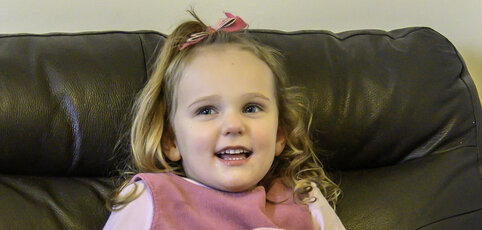Autism and gender identity
Gender identity and biological sex are different things. People are usually assigned a sex at birth according to their genitalia – male or female.
What is gender identity?
How someone feels about their gender is known as gender identity. Some people identify as the sex they were assigned with at birth, others don’t. Some people may be assigned male at birth, but identify as female. Some may be assigned female but identify as male, or people may identify as neither female nor male. Some people may feel both male and female at different times. We all express our gender in different ways, for example in how we dress and act.
Gender dysphoria
People may experience discomfort or distress when their assigned sex is different from the gender they identify with – this is known as gender dysphoria (GD). There is some evidence to show a link between gender dysphoria and autism, and that autistic people may be more likely than other people to have gender dysphoria. However there is little evidence about the reason(s) why, and some recent research suggests the link between autism and gender dysphoria is not so clear. More research is needed. More research is also required to develop and test assessment tools, support and treatment for autistic people experiencing gender dysphoria.
Personal stories
Dr Wenn Lawson, autistic advocate, researcher, and psychologist, said: "The non-autistic world is governed by social and traditional expectations, but we may not notice these or fail to see them as important. This frees us up to connect more readily with our true gender."
Madge Woollard, autistic pianist, said: "Although we are not transgender ourselves, my wife and I both identify as non-binary (though we are happy using the pronouns ‘she/her’). We find we get on particularly well with transgender people, and those of different genders. I think there is a huge overlap with autistic people and transgender people. There are also a lot of non-binary autistic people around. I think this is because a lot of us don’t really fit in socially, and this extends to ideas around gender."
Sophie Gribben, a non-binary autistic person, chatted to us about celebrating Pride Month. They told us: "One of the things I have difficulty with is attending Pride festivities. I am sensitive to noise, and crowds, but if I am properly accommodated then I really enjoy myself!"
-
- NHS - Gender Dysphoria
- NHS - How to find an NHS gender dysphoria clinic
- Stonewall
- GIRES - Gender Identity Research & Education Society
- Young Minds - Gender identity

Autistic women and girls
More women and girls than ever before are discovering that they are autistic. Many had been missed or misdiagnosed due to outdated stereotypes about autism. But that is slowly changing.

The Spectrum magazine
Explore one of the UK's largest collections of autistic art, poetry, and prose. The Spectrum magazine is created by and for autistic people, and is available both online and in print.






You are not alone
Join the community
Our online community is a place for autistic people and their families to meet like-minded people and share their experiences.
Join today